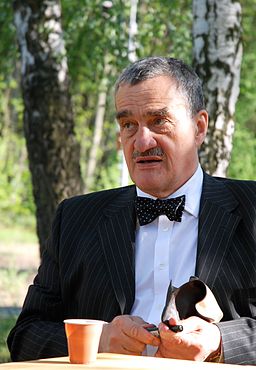Eastern Europe: Parties and the mirage of technocracy
By Sean L Hanley, on 16 May 2013

Image: kerryj.com CC-BY-NC
Non-party technocratic governments of experts have stepped in to fill a political gap in several European countries. But in East and Central Europe they are not always what they seem, writes Seán Hanley
Many commentators saw the governments of non-party technocrats formed in Greece and Italy in 2011 as an ill omen for development of party-based democracy in Europe. Established parties, it is suggested, are turning to technocratic caretaker administrations as a device to manage economic and political crisis, which allows them both to duck (or least share) responsibility for painful austerity measures. Such non-partisan governments of experts, it is argued, can only widen the yawning the legitimacy gap between governors and governed.
Technocratically-imposed austerity backed by big established parties can further undermine party democracy by provoking anti-elite electoral backlashes: the rise of new populist parties or breakthroughs by previously marginal radical groups. This in turn, makes coalition formation difficult and further rounds of caretaker government or awkward left-right co-operation more likely. The success of the Five Star Movement in Italy and its difficult political aftermath, which has finally resulted in an implausible Grand Coalition, seems to illustrate this scenario perfectly. Sometimes, caretaker technocrats themselves even add to the uncertainty, revolting against their erstwhile masters and founding their own new parties.
How has the drift towards technocratic crisis management impacted Central and Eastern Europe? The region is sometimes grouped with debt- and crisis-afflicted Southern Europe states as an economically weak periphery of flawed and potentially unstable democracies, where technocratic crisis governments are the order of the day.
And not without reason. In March this year the President of Bulgaria Rosen Plevneliev appointed a technocratic caretaker government to lead the country to early elections on 12 May following the resignation of prime minister Boyko Borisov in the face of street protests against poverty, high utility prices and corruption. Hungary had a year-long technocrat-led government in 2009-11, as did the Czech Republic in 2009-10 following the fall the centre-right minority government of Miroslav Topolánek. Meanwhile, Slovenia – one of three CEE states in the Eurozone – is set for a Southern European-style bailout following the downgrading of its bonds to junk status with undoubted domestic ramifications. (more…)
 Close
Close


